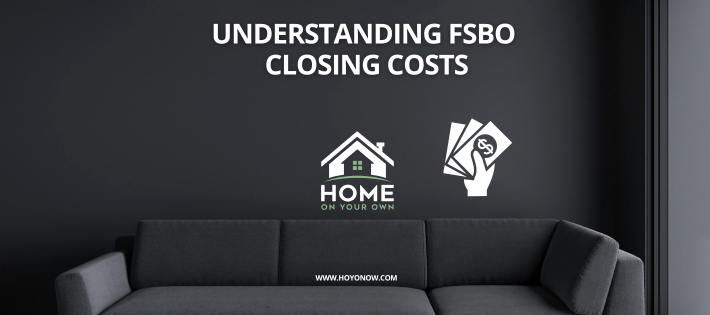By: Robert Urban, FSBO Expert, Calculator App User
So you’ve decided to sell your home without a real estate agent in Florida—congrats, you brave DIY hero. Maybe you want more control. Maybe you want to save on commissions. Or maybe you just really enjoy spreadsheets. Either way, there’s one part of the process that still gives even the savviest sellers a headache: closing costs.
Let’s break down exactly what FSBO sellers in Florida need to know when it comes to closing costs—what they are, who pays them, and how much you should expect to fork over on closing day.
What Are Closing Costs?
“Closing costs” is a catch-all term for the fees and expenses due at the final stage of a real estate transaction. These costs cover everything from taxes and title services to the cost of transferring ownership legally and safely.
In Florida, closing costs typically range from 1% to 3% of the home’s sale price for sellers, though the final number can vary depending on your county, property type, and whether you’re paying for certain services that are negotiable.
Typical FSBO Closing Costs for Sellers in Florida
Here’s a breakdown of the most common seller-paid closing costs in a Florida FSBO transaction:
1. Title Insurance (Owner’s Policy)
- Cost: Roughly $1,000–$3,000, depending on property price
- What it is: Protects the buyer against title defects or disputes
- Florida twist: In most Florida counties, the seller traditionally pays for this. Some counties (like Miami-Dade and Broward) shift this responsibility to the buyer, so check your local customs.
2. Doc Stamps on the Deed (State Transfer Tax)
- Cost: $0.70 per $100 of the sale price (or $0.60 in Miami-Dade County for single-family homes)
- Example: On a $300,000 home, this runs $2,100
- Non-negotiable: It’s a state tax and must be paid at closing, generally by the seller.
3. Title Search Fee
- Cost: $200–$400
- Purpose: Verifies there are no liens or legal issues clouding the title.
- Good to know: Even in FSBO sales, you want this done by a licensed title company or real estate attorney.
4. Municipal Lien Search
- Cost: $100–$300
- Why it matters: Finds hidden fees like unpaid utility bills, code violations, or permits that were never closed out.
5. Closing Agent or Attorney Fees
- Cost: $500–$1,200
- In Florida: Closings are typically handled by a title company, but either party can hire a real estate attorney. Expect to pay more if you go this route—but it might be worth it, especially in a FSBO deal.
6. HOA/Condo Association Fees & Estoppel Certificate
- Estoppel certificate cost: $200–$500
- What’s that?: A legally required document showing your HOA dues are current and disclosing any upcoming assessments.
- Don’t skip this: Without it, the sale could be delayed or canceled.
7. Recording Fees
- Cost: Around $10 per page (average: $50–$150)
- Why: You’re paying the county to officially record the new deed. It’s bureaucratic, yes—but essential.
8. Mortgage Payoff & Prepayment Penalties (if applicable)
- Cost: Depends on your lender and remaining balance
- Heads-up: Some lenders tack on additional fees to close out your loan early. Double-check your payoff statement for hidden fees.
9. Property Taxes (Prorated)
- How it works: You’ll owe property taxes up to the date of closing, prorated for the year.
- Pro tip: Florida taxes are paid in arrears (you pay for 2025 in late 2025), so you might owe very little or quite a bit depending on timing.
Total Expected Seller Closing Costs (FSBO)
Here’s an estimated range for a $300,000 FSBO home in Florida:
| Fee Type | Estimated Cost |
|---|---|
| Title Insurance | $1,000–$3,000 |
| Documentary Stamp Tax | $2,100 |
| Title Search & Lien Fees | $300–$700 |
| Closing Agent/Attorney Fees | $500–$1,200 |
| Estoppel Certificate (if HOA) | $200–$500 |
| Recording Fees | $50–$150 |
| Prorated Property Taxes | Varies |
| Total Range | $4,150–$7,550+ |
Remember: this doesn’t include your mortgage payoff or optional costs like home warranties or buyer incentives.
Who Typically Pays What in a FSBO Sale?
Just because you’re skipping the agent doesn’t mean the costs disappear—they just get redistributed.
Here’s what FSBO sellers often cover:
- Title insurance (owner’s policy)
- Doc stamps on deed
- Title search and lien reports
- HOA estoppel certificate
- Closing/attorney fees (if the seller chooses the closing agent)
Here’s what buyers typically cover:
- Title insurance (lender’s policy)
- Inspection and appraisal
- Survey (if needed)
- Loan origination and underwriting fees
- Their side of attorney/closing agent fees
But remember—everything’s negotiable. FSBO gives you freedom, but you’ll need to know how to advocate for yourself.
Pro Tips for Keeping FSBO Costs in Check
Shop around for title companies and attorneys—rates vary.
- Clarify up front who chooses the title company. In most FSBO deals, the party choosing the company pays the closing fees.
- Use a FSBO-friendly contract template (the Florida “AS IS” Residential Contract is a popular one).
- Make sure to disclose everything properly to avoid future legal trouble.
- Have a backup plan: Consider paying a transaction coordinator ($300–$800) to keep your sale on track if you’re overwhelmed.
Going FSBO in Florida isn’t just about skipping the 6% commission—it’s about knowing what’s left on your plate. Understanding your closing costs helps you price your home properly, negotiate confidently, and avoid those “wait, what is this charge?” surprises on closing day.
And while it might feel a little like doing your own dental work at times, pulling off a smooth FSBO sale can be incredibly rewarding—both financially and personally.
You’ve got this. And if you need help? There are plenty of experts (and templates) who can jump in right where you need them at HOYOnow.com
Good luck- I am rooting for you,
Robert Urban

